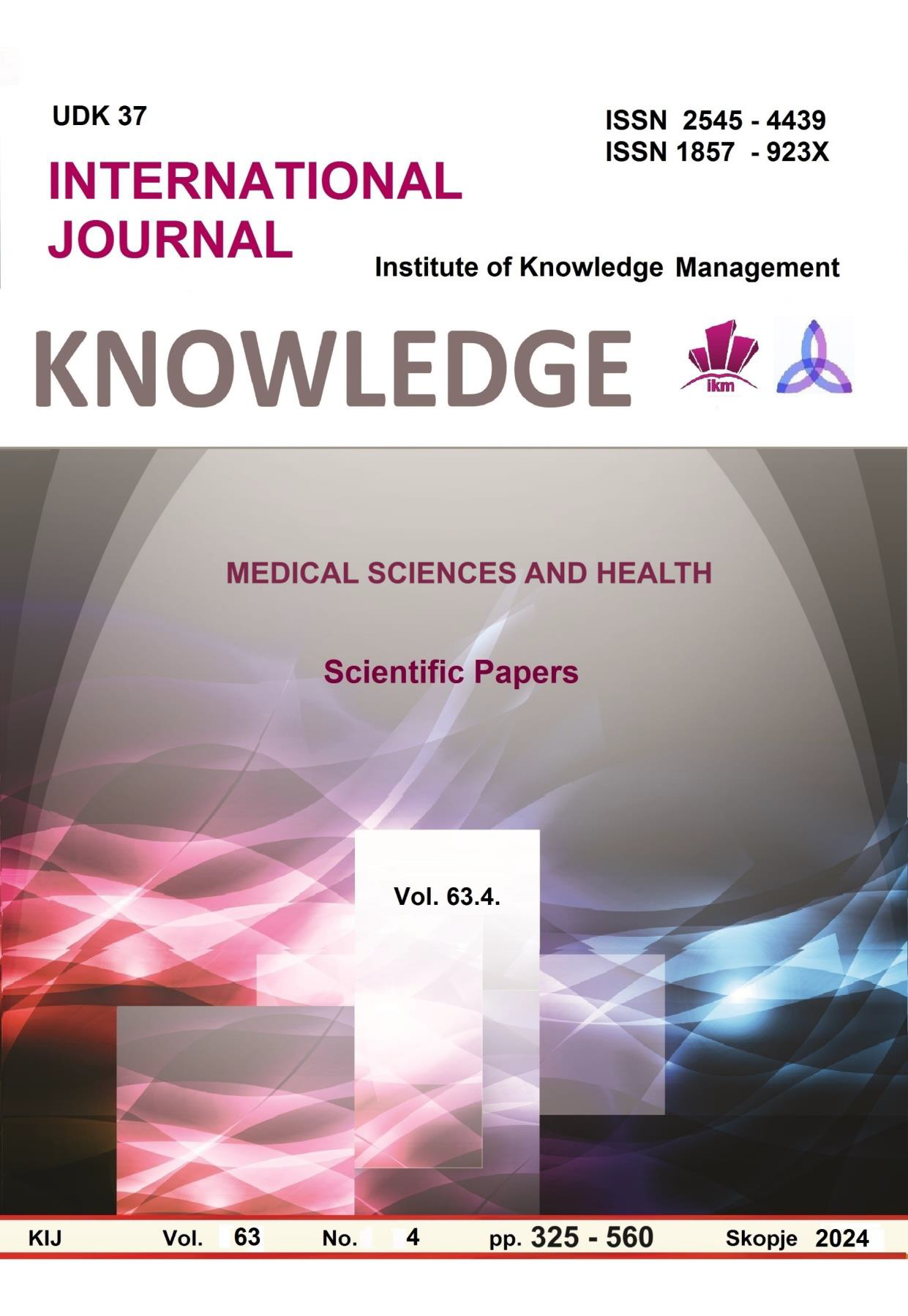IMPORTANCE OF IMPLEMENTING THE ANTIMICROBIAL STEWARDSHIP PROGRAM (ASP) IN THE ICU AND EMPHASIZING THE ROLE OF FULLY INTRODUCED MICROBIOLOGICAL SCREENING IN TERMS OF REDUCING THE LENGTH OF STAY AT THE ICU AND THE HOSPITAL, FOR BETTER CLINICAL OUTCOME
IMPORTANCE OF IMPLEMENTING THE ANTIMICROBIAL STEWARDSHIP PROGRAM (ASP) IN THE ICU AND EMPHASIZING THE ROLE OF FULLY INTRODUCED MICROBIOLOGICAL SCREENING IN TERMS OF REDUCING THE LENGTH OF STAY AT THE ICU AND THE HOSPITAL, FOR BETTER CLINICAL OUTCOME
Author(s): Jelena Micik, Ljubica Shuturkova, Zoran Sterjev, Aleksandra GrozdanovaSubject(s): Social Sciences, Health and medicine and law
Published by: Scientific Institute of Management and Knowledge
Keywords: antimicrobial resistance;antimicrobial stewardship program in the ICU;microbiological screening;Clinical Hospital “Acibadem Sistina”
Summary/Abstract: The principles of the national and international campaigns are attracting the public eye by emphasizing the rational use of currently available antibiotics. This has emerged due to the concerns regarding the high prevalence of pathogens that manifest resistance to antibiotics alongside the declining research activities to develop new antibiotics. Hence, the need to provide a multidisciplinary approach to counter antibiotic resistance, provide consistent efficacy and optimize the therapy of choice regarding the resistance and the implementation of the antimicrobial stewardship program in the ICU. Following the assigned principles of this program, regarding treatment in the intensive care units, could potentially lead to increase in the rate of cured infections, followed by reduction of hospital costs and length of hospitalization. The objectives of the upcoming research have been formed upon the estimation of the antimicrobial stewardship program effectiveness in the ICU, through lowering the length of stay in the ICU and lowering the overall stay in the hospital ward expressed in days. This research is a retrospective, correlated, group study that spans over a period of four years (2020 – 2023), and is conducted in the Cardiac Surgery Intensive Care Unit of “Acibadem Sistina” Clinical Hospital. A total of 1277 adult patients upon cardiac surgery and admission in the ICU, have been included in the study. Additional subdivision of patients into two groups was made with the following selection criteria: Group 1 (2020 – 2021) includes patients without initial microbiological screening and no antimicrobial stewardship program on the ICU ward, and Group 2 (2022-2023) includes patients with initial microbiological screening and implemented antimicrobial stewardship program. Out of all patients in the study, 636 patients (49.80%) were assigned in group 1 and 641 patients (50.20%) in group 2, respectively. Regarding the obtained results for Z=23.13 and p<0.01 (p=0.00), it can be concluded that the length of stay in the ICU for the patients in group 1 is significantly higher than the length of stay of the patients in group 2.ž The emphasis of the fully implemented microbiological screening, as part of the antimicrobial stewardship program in the ICU, can be seen through the crucial aspects as: detection of pathogens in due time, implementing of definite antimicrobial therapy as soon as possible, decreasing the length stay at ICU and overall length of stay in the hospital.
Journal: Knowledge - International Journal
- Issue Year: 63/2024
- Issue No: 4
- Page Range: 485-489
- Page Count: 5
- Language: English

